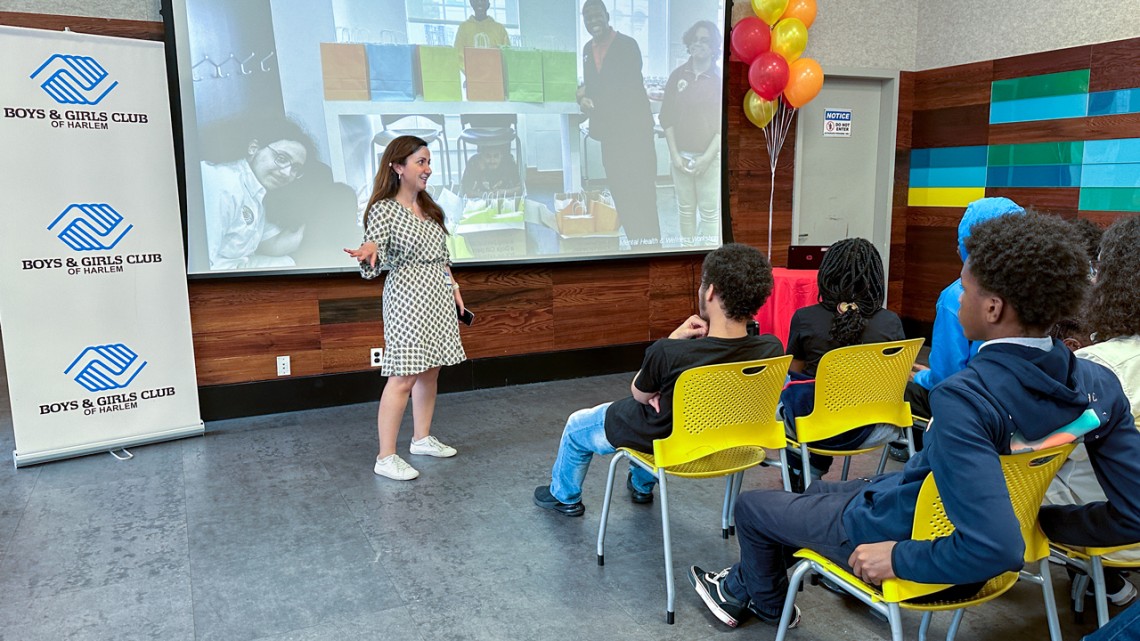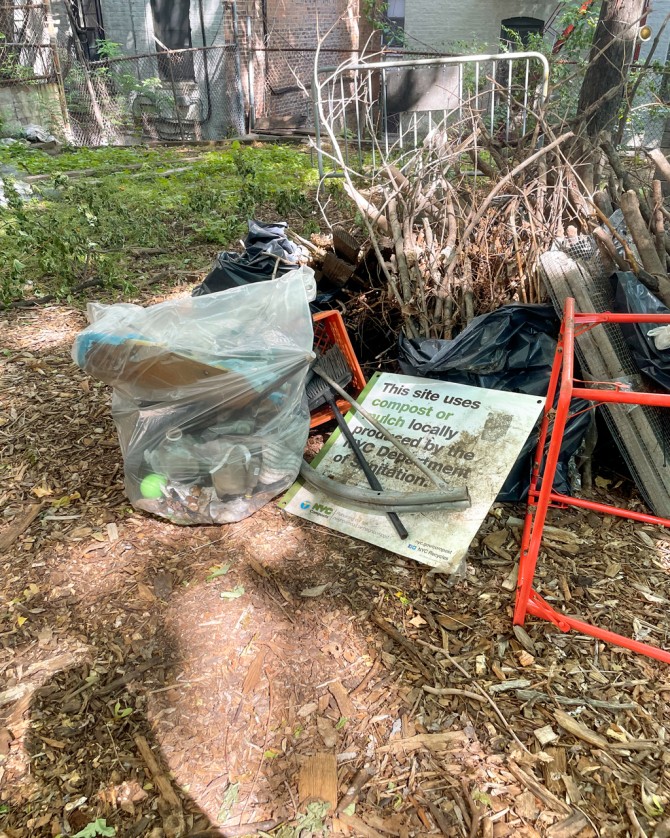
Zeynab Jouzi, postdoctoral research fellow at the Action Research Collaborative, welcomes guests to the Boys & Girls Club of Harlem June 6 during a presentation the students gave on their projects.
Harlem youth lead projects that benefit their community
By Natalia Rommen
With a bit of funding, high school students in Harlem have come up with projects that help their neighbors – and offer researchers insights into how young people think about their capacity to make a difference.
Twelve high school students from the Boys & Girls Club of Harlem (BGCH) planned and executed a variety of projects this spring, from a mental health workshop and community-building initiatives to offering need-based donations to local Harlem residents, all with support from Cornell’s Contribution Project. The students presented their projects during a showcase at the club June 6.
Each high school student received $250 to put their ideas in motion. The projects, which began in March, were mostly aimed at providing support to peers or giving back to the broader Harlem community. The Contribution Project was offered to high school students at BGCH through a partnership between Cornell’s Action Research Collaborative (ARC) and the Bronfenbrenner Center for Translational Research (BCTR).
“Students were excited to brainstorm contributions that would be meaningful to their communities,” said Tashara Leak, associate professor in the Division of Nutritional Science in the College of Human Ecology and co-director of ARC. “This effort demonstrates a need to continue listening to youth and provide them with resources and opportunities to make a positive difference.”
One team, which pooled their individual funds to make a bigger impact, held a workshop to increase mental health awareness and provide support to peers. The workshop was hosted in partnership with certified mental health experts and featured a panel discussion between youth and experts. The funding also provided more than 40 students with wellness kits, which included face masks, pens inscribed with positive affirmations and candies, and helped purchase yoga mats for the Boys & Girls Club.
Another student group coordinated a community cookout at the club. They purchased catering from the popular Harlem restaurant Jacob’s and cooked their own desserts to feed nearly 50 attendees.
While some projects focused on one-time events or donations, others opted for long-term contributions. A student at The Bronx School of Young Leaders used the funds to return to her former middle school and clean up the parks around the area. She said her personal experiences inspired her to make schools feel safer and cleaner.
Contribution Project leaders say they aim to learn more about the ways in which young people who are at different stages of development think about their impact and how they act on those ideas.
“We can learn about the contributions they think are important to make in the world, what motivates them to make those contributions, and about their willingness to work with others to make the changes they want to see in the world,” said Neil Lewis Jr. ’13, ARC co-director and associate professor of communication in the College of Agriculture and Life Sciences. “Learning more about how the next generation thinks about these issues can generate insights that go far beyond the immediate projects.”
Added Anthony Burrow, associate professor of psychology in the College of Human Ecology and BCTR director: “This is a shining example of how youth are in tune with the world and want to help their neighbors. They decided to make contributions that will have ripple effects that endure and positively affect others. That is a testament to their sense of the important and contributing role they play in their communities.”
Natalia Rommen is a communications specialist for the Action Research Collaborative. Juan Vazquez-Leddon, communications director in the BCTR, contributed to this story.
Media Contact
Get Cornell news delivered right to your inbox.
Subscribe


